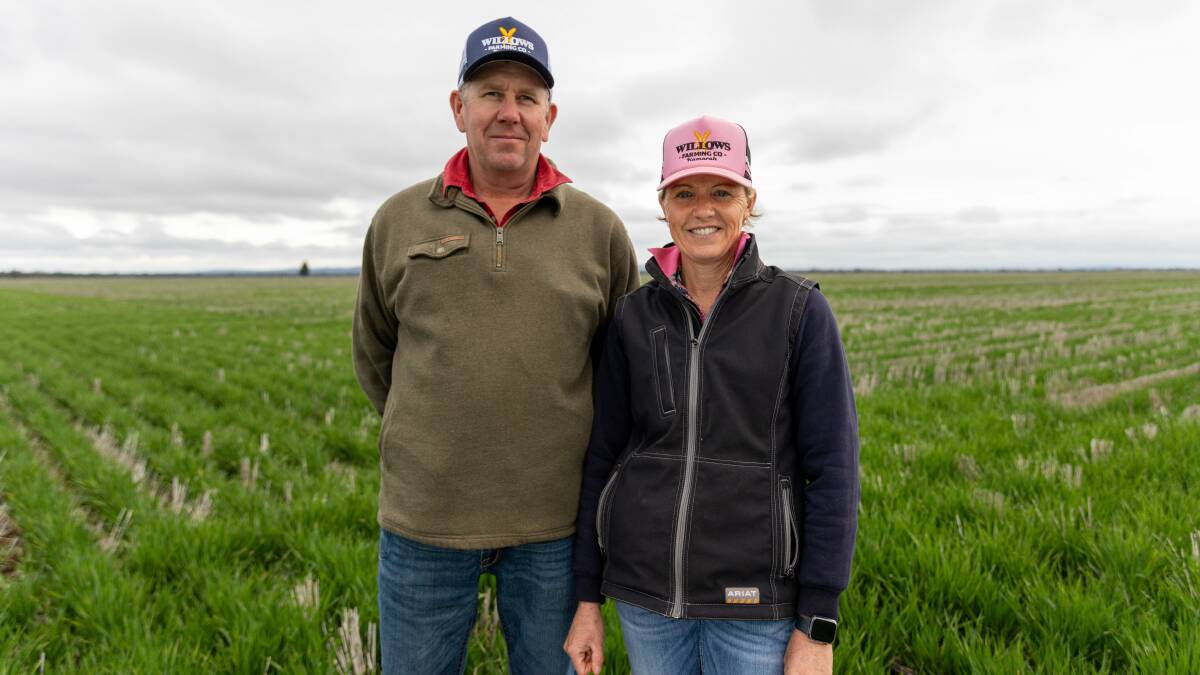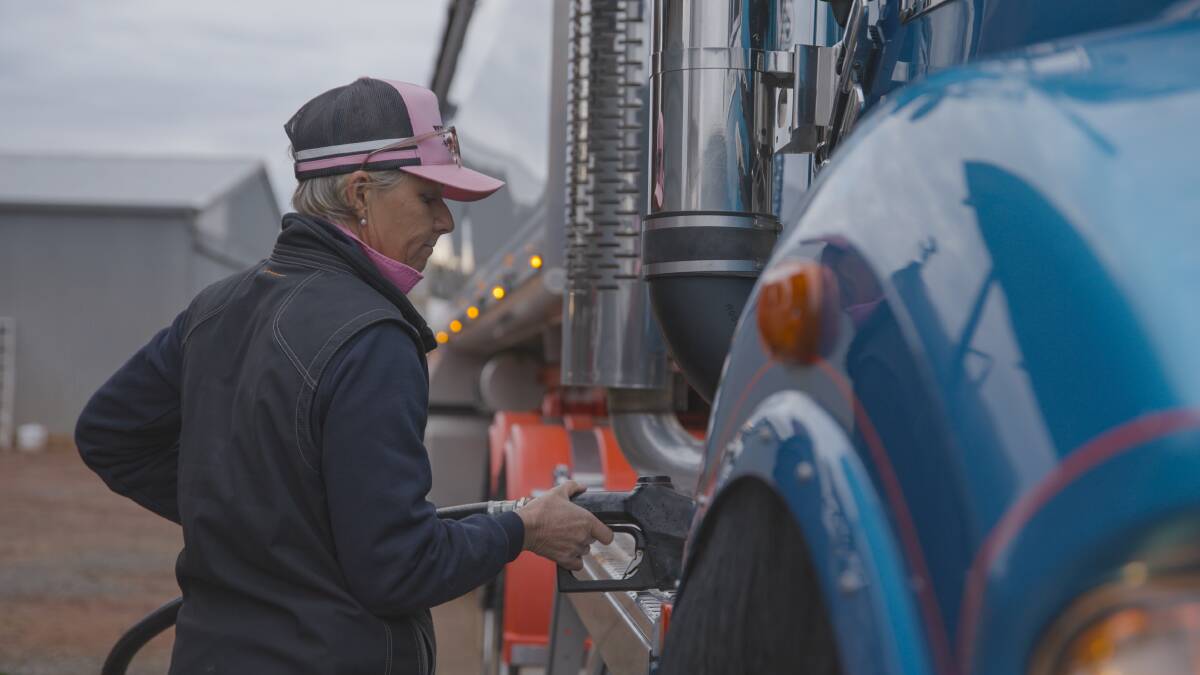Farming and science combine to unlock new opportunities for growers

This is branded content for Loam Bio
Grain grower Brad Richens is using Australian-developed novel technology to capitalise on carbon farming opportunities to avoid future bills.
Mr Richens, alongside his wife Joan, run an all-out cropping operation on 1,538 hectares at 'Maypark', Kamarah, about 80 kilometres east of Griffith in the Riverina region of NSW.
They are among a growing number of farmers using Australian company Loam Bio's game-changing technology to sequester carbon into farming soils.
By doing so, improving soil health to grow better crops, increasing productivity and boosting carbon credit potential.
"I started to look at ways to offset our carbon footprint because we don't want to be handed a bill down the track, so we are getting on the front foot now," Mr Richens said.
"We hope this project can diversify our income source later on, allowing the next generation to utilise it."

Growing up on the land at Beckom in NSW, followed by stints as a mechanic and contract harvester across the US and Israel, Mr Richens returned to the Riverina to buy 'Maypark' with Mrs Richens 25 years ago.
The family had run a mixed-farming enterprise until they destocked at the height of the 2000 drought to focus on growing canola, wheat, barley and lupins.
This is when his interest in soil health really took hold.
"I've always been interested in soil health, animal health, plant health, and our health," Mr Richens said.
"Loam appealed to me because it has revolutionised the approach that the agricultural biotechnology industry takes to customer relationships.
"It shows they are in it for the long haul with us. If we don't sequester carbon, then they don't get paid either, so they have real skin in the game."
Loam's innovative biological product helps farmers build soil carbon, and unlike traditional companies that simply sell products and move on, Loam Bio partners with farmers to ensure a product's effectiveness.

Loam's scientifically-proven carbon fixing fungal inoculant, CarbonBuilder, helps capture and store stable carbon in agricultural soils.
Since 2019, Loam has invested more than $70 million in lab projects, replicated field trials, and full-farm demonstrations to develop the game-changing technology.
This also includes academic validation, with independent Australian researchers recently demonstrating that Loam Bio's CarbonBuilder fungi can increase soil carbon levels, while also stabilising the carbon (Stuart et al.2024).
"So when people say that bugs in the ground is mumbo jumbo, that's not the case. We wholly and solely need them there," Mr Richens said.
"It's the same as fixing nitrogen in legumes - this is another way to fix carbon. If we can build soil carbon, we can hold more moisture in our soil, grow better crops and better mineralisations, and hope to boost yield and increase soil health.
"Loam is committed to making it as seamless as possible, has been upfront through the entire process, and has nothing to hide when it comes to the science and getting the best results for us growers."
Mr Richens is calling on more growers to investigate the carbon farming market and ensure the agricultural industry is front and centre of the carbon conversation at decision-making levels.
"Many farming friends haven't wanted to get involved because they think it's too much work, but we can't put our heads in the sand. These decisions affect business and farming is our business, so we need to be on the front foot," he said.
"Don't be afraid to reach out to Loam - give them a ring, talk to them, get them to do a farm visit, go check out their labs because they have nothing to hide and want to work with us.
"This is killing two birds with one stone. By using Carbon Builder, we are hoping to increase soil carbon and its moisture-holding capability, and therefore helping to increase more microorganisms in our soil."
Loam set up its headquarters in NSW, and has grown to a team of 140 researchers, agronomists and carbon project specialists in Australia and in Loam offices across the world.
This is branded content for Loam Bio


